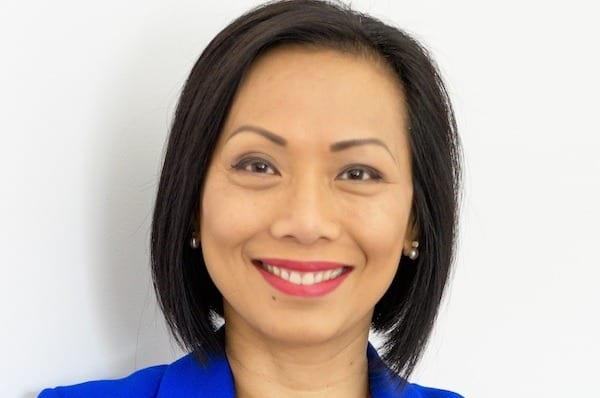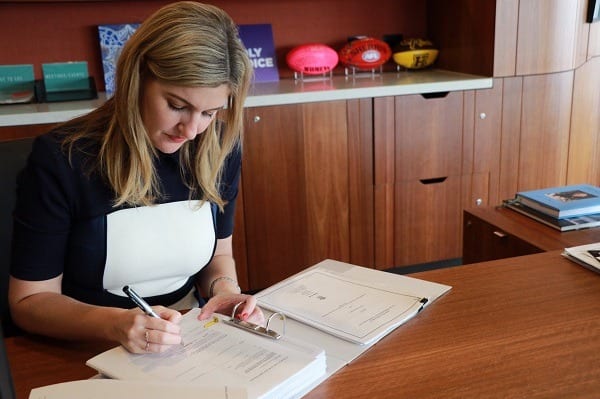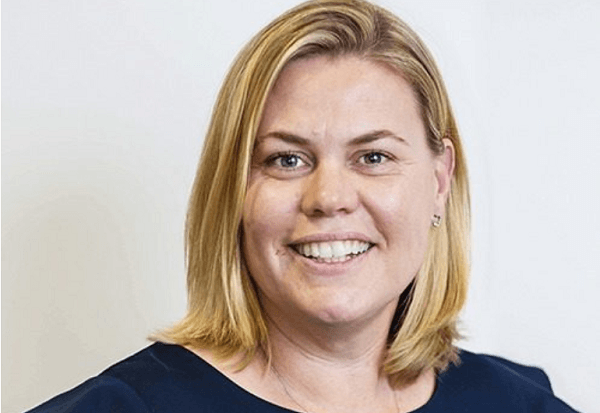But unfortunately progress elsewhere has been slow, with the 2019 Federal Election doing very little to raise the number of women in the lower house. The election saw men continuing to hold more than three quarters of MP spots held by the Liberal Party and 53 per cent of those held by the Labor party.
While there’s much talk of how we can encourage more women to put their hands up for political careers, we found there’s no shortage of talented women who are willing to do so.
Recently, we met with six women who had run for different levels of government during a series of roundtable discussions held in Brisbane and Sydney in partnership with Hall & Wilcox, as part of our ‘Disrupt the Status Quo’ series with the law firm.
The women we met all had very different pathways that took them into politics, with timing, hard work and clearly a lot of passion all factoring into the success they had.
Our special guests included women who have run – both successfully and not – for local, state and federal government seats, including former Labor Senator Claire Moore, Brisbane councillor Kara Cook, Queensland minister The Hon. Shannon Fentiman and 2019 Federal election candidate Jo Briskey.
In Sydney we heard from Fairfield counsellor Dai Le, who has contested a number of elections as both a Liberal representative and an independent, as well as Licia Heath, the CEO of Women For Election Australia and former City of Sydney Councillor Kathryn Greiner, who has been a Liberal Party member for 50 years.
Overall, one thing we took away from these discussions was the level of support and respect women have for each other, even across party lines and government levels.
As Hall & Wilcox Partner and Diversity & Inclusion Chair James Morvell observed on the sessions, “We can never underestimate the power of women connecting and supporting each other in respect of their career journeys.”
It’s these connections and shared experiences, he noted, that help highlight some of the key challenges in need of disruption. “We’ve seen this with women supporting women in both their success and challenges, and how it ultimately helps disrupt the status quo overall, creating the change we need on boards, in management teams and in politics.”
Each roundtable participant shared how they made their way into running for office, all proving there is no one avenue for developing an ambition or commitment to run.
Nor is there a silver bullet to being successfully elected – but clearly being in the game in the first place is critical.
Quotas have made a significant difference to the numbers of women elected, which the Australian Labor Party introduced in the 1990s, and the results of which can be seen in the fact the party’s Federal caucus is almost (but not there yet) 50 per cent female.
It’s also clear that progress made on women’s representation does not guarantee that it will be sustained. As Former Senator Claire Moore said, “As with anything like this you blink, you take your eyes off it for one second, and things go backwards.”
At a separate roundtable in Sydney, Kathryn Greiner noted just how much progress she personally saw in the Liberal party – moving from women making sandwiches in the 1970s to being heavily involved in debates and ideas.
“But then it hit a roadblock,” she said. “I have watched it change significantly. You now have the rise of the apparatchik, mainly young men who want to further their careers.
Hard work is a given. But in politics, luck plays a huge part.
So how do women get a start in politics?
Possibly more so than other industries, it seems luck plays an extensive part in any great political career.
Putting yourself in the way of that luck is essential.
Claire Moore spoke unashamedly about initially sitting at the bottom of the Senate ticket back in 2001. She never expected to win. “There was a big internal fight and I went from an unwinnable position to a winnable position,” she said. It was the start of a 17-year political career that saw her able to pursue some remarkable work, especially regarding water security.
Licia Heath (pictured above) also believes that luck is a massive factor in getting elected and even just in having the ability to enter a race, but said you need to be prepared to step up for an opportunity even if you’re not 100 per cent ready. “You will never actually feel ready, and timing is everything,” she said.
Now CEO of Women for Election, Licia’s own opportunity to run for election came unexpectedly and saw her condensing her “six year plan into six weeks”. She ran as an independent for the seat of Wentworth during the 2018 by-election.
“I was told to expect the worst but it was actually one of the best things I’ve ever done,” she said.
“I didn’t win, but just by being there I made a difference, I was able to give the other candidates a nudge and say, ‘you need to do better’.”
For Brisbane Councillor Kara Cook, her opportunity to enter local politics came when she had a three-year-old toddler and a baby at home. Having previously been active in the community particularly on domestic violence prevention, Cook’s local state MP came around to ask if she would be interested in running for office. “I had coffee and biscuits prepared, and the baby in a high chair when they came over and told me to consider it. I asked how long do I have to decide? And they said, well if you can back to us tomorrow that would be great.”
With excellent support from her partner she called back that night to ensure she wouldn’t “talk herself out of it.” Within days, she was door knocking and seeing her face on billboards down the street.
That was January 2018. Councillor Cook says the help she received from other women was vital in making it happen and during the 18 months since.
“People talk about the down side of politics of so many people trying to tear you down, but there are so many people also trying to build you up.”
Accidental candidates
Fairfield councillor Dai Le calls herself an “accidental candidate”, declaring she had no knowledge of the process before choosing to run as a Liberal in the Federal seat of Cabramatta in 2008, in a safe Labor seat, where she achieved an extraordinary 23 per cent swing. The decision happened while she was walking through a shopping mall with her husband. “He planted the seed and I thought, ‘could I really be involved?” she said.
“Within 24 hours I had contacted the Liberal party. Within days I walked into a room, a clinically white room in front of white men. By the end of the week, I’d taken leave from my job at the ABC, and on the Saturday I was out campaigning.”

Le said her experience running for politics has been ‘enabling’ but not necessarily ‘empowering’, something she’s previously written about at length for Women’s Agenda.
“For me, being a woman, I call myself a coloured women, my dream is still to get into parliament, it’s been a challenging journey but it’s also been enabling. It’s given me a lot of skills, all the games that a lot of these boys play has meant that I’ve had to develop skillsets to overcome those barriers.”
Know your why and consider limitless ambition
Queensland minister Shannon Fentiman was preselected to her seat unopposed, but it wouldn’t have happened without preparation and ambition.
“I wouldn’t have been preselected unopposed if I hadn’t of done the work. It involved lots of talking to branch members about why you’re running and also getting clear and specific on why,” she said.
“One of the first thing you have to do if you are interested in running for politics is to be able to explain why you are running in thirty second or less.”

She also recalled an important lesson in limitless ambition: stating that when she said she wanted to be a barrister during a job interview prior to her political career, she was told, “but why don’t you want to be a High Court judge?”
Visible children in the house – and on the campaign trail
Increasingly, we’ve been seeing more parents with their children in office, at all levels of politics.
Whether it’s Senator Larissa Waters breastfeeding her baby in Parliament, former MP Kelly O’Dwyer holder her six week old baby in her Parliamentary office, or toddlers walking the hallways of state parliaments, babies and children are becoming part of the visible day to day lives of politicians.
Such images demonstrate that politicians are also parents – thereby in tune with the concerns of many of their constituents – and also that it’s possible to have a political career while having children.
Jo Briskey first ran as a state candidate in the 2012 Queensland election, at the age of just 26. She moved on to spend five years as executive director at The parenthood before throwing her hat in the ring earlier this year as a Labor candidate for the Federal election.
Now with two young children, she recalled having doubts about running that first time back in 2012, because she was thinking about having a baby.
A conversation with Laura Fraser Hardy changed her view. “She said, ‘has any man ever had that conversation with themselves, that I’m not going to run because I’m about to become a parent?’ That had such a big impact on me and at the last election she actually gave birth while running an election, which is just phenomenal.”
Briskey said she intentionally took her young children on the campaign trail earlier this year to demonstrate that being a parent is “part of who I am”.
A disengagement in the political?
With women now working in greater numbers than ever before and making significant progress up the corporate and leadership ladders, is a consequence that we now have less time to engage in politics?
And how has a 24/7 news cycle showcasing some of the worst behaviour in Parliament – along with a multiple party leadership changes – affected women’s overall interest in all things political?
These were questions raised at our roundtables, with Licia Heath noting that one of the unfortunate outcomes of modern busy lives, particularly for women, has been disengagement from the kinds of political activities that older generations may have more easily participated in – such as attending meetings, discussing politics at local sporting clubs and officially joining parties.
“If you attend a local branch meeting, regardless of the party, you will often see the 70 year old, along with the ambitious 24 year old, but what is missing is that age group in the middle,” she said.
“Add to that the negative feedback loop, where you look at politics today and think, ‘that’s garbage, I have no desire to argue in an adversarial, misogynistic forum’. And it can leave some of us wondering, what’s the point?”
Disengagement won’t make the problem go away. There’s an opportunity to disrupt the aspects we don’t like about politics and to expect something better. An opportunity that could occur through more women getting involved, by getting ourselves in the way of that luck.
These roundtable session were supported by Hall & Wilcox, which has been a continued partner on our ‘Disrupt the Status Quo’ series. Other areas we have covered include women in AI, diversity in leadership and getting more women quoted in the media.


